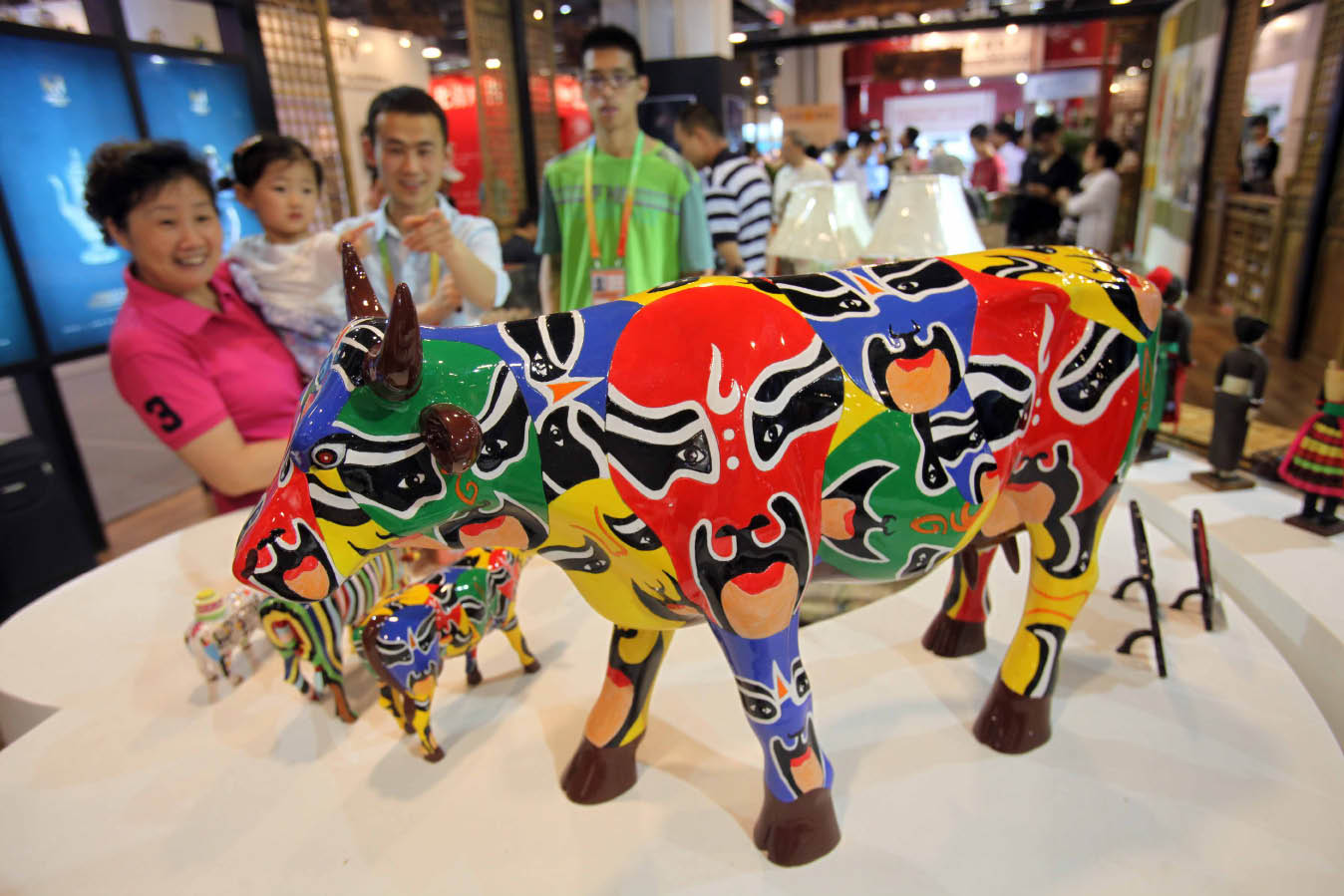Be More Daring
In early 1991, Deng Xiaoping, who was on an inspection tour of Shanghai, said: "I hope the people of Shanghai will further emancipate their minds, be more daring and move ahead faster." That quote, like many of the plain and lively words of his, reassured the Chinese people. At the time, China had solved the problem of food and clothing, and in a few localities living standards had attained the level of moderately developed countries. Following the disintegration of the former Soviet Union and the drastic changes in Eastern Europe, a debate occurred in ideological circles as to whether China's development road was socialist or capitalist. Some scholars held that practicing a market economy meant taking a capitalist road. Deng Xiaoping famously responded: "It doesn't matter if the cat is black or white, as long as it catches mice." A market economy is simply a means, and China should adopt a bold approach by utilizing foreign capital to upgrade its large state-owned enterprises.
Karaoke
Daisuke Inoue, who invented karaoke in the 1970s, was named by Time magazine among Asia's most influential people, alongside Mohandas Gandhi and Mao Zedong. Karaoke entered China in 1991. Together with song-and-dance halls and nightclubs that appeared in the late 1980s, they allowed the Chinese to experience a "night life" in a real sense. In 1991, there were about 200 karaoke halls in Beijing, and the figure jumped to nearly 1,000 in 1994. Karaoke halls mushroomed in a number of big cities, and then spread to medium-sized and small cities and towns. This form of entertainment broke the monopoly of singing by professional singers, foreshadowing the "imitation shows" and grassroots singers who appeared in later years.
Jin Yong Fever
The martial arts novels of Jin Yong, a Hong Kong writer whose works had been popular among Chinese throughout the world for over two decades, finally appeared on the Chinese mainland. By the end of 1994, more than 40 million copies of his novels were printed and distributed on the mainland, with a readership estimated at 200 million. Jin Yong's martial arts novels are renowned for their ancient elegance, drawing inspiration from a variety of art forms, in much the same way as Hong Kong films have drawn on Hollywood. Jin Yong has integrated the styles of Buddhism and the ideology of Laozi and Zhuangzi, offering readers a chance to relax from the pressures of modern life.
1992
Luxury
In 1992 China abolished the regulation prohibiting foreign direct investment in the retail market, and the subsequent opening of Scitech Plaza was a sensation. But who were the expensive luxury goods aimed at? Even so, in the same year the French brand Louis Vuitton entered China, and many other luxury brands followed suit. In 2004, China abolished the regulation restricting foreign brands from establishing franchise chain shops in China. Many luxury brands entered China. Now high-end consumer venues in Beijing have proliferated. In 2006, Beijing held an exhibition of international luxury brands. By some estimates, luxury consumers now make up 13 percent of the total population, amounting to 160 million. China has become the luxury consumer market with the greatest potential.
"Seeking an Explanation"
While those who got rich earlier than others were debating high-end consumer venues, "seeking an explanation," a line spoken by the heroine in The Story of Qiuju, a film directed by Zhang Yimou, became a pet phrase of the Chinese people. The film, which won the Gold Lion Award at the Venice International Film Festival, tells the story of a woman in a small mountain village. Qiuju, to safeguard her personal dignity, filed a series of lawsuits despite many difficulties. In traditional society, Chinese people are reluctant to sue. As an old saying goes: "Never make a lawsuit, even if you are wronged." With the onset of economic prosperity, however, the Chinese people have begun to realize their rights and interests. In the 1990s, a number of people became famous for safeguarding their rights and interests in court, heralding the first signs of a civil society.
Three Gorges Project
The Changjiang (Yangtze) River is a cradle of Chinese civilization in much the same way as the Ganges River is to ancient Hindu civilization or the Nile River is to ancient Egyptian civilization. Sun Yat-sen, a pioneer of Chinese democracy, presented his idea of the Three Gorges Project of the Yangtze River in 1919 in his book Methods and Strategies of Establishing the Country. In 1950, China established the Changjiang Water Resources Commission. Chinese scientists and technicians debated the scheme's merits for decades, and in 1992 China passed a resolution on the construction of the Three Gorges project. Two years later, construction began.

